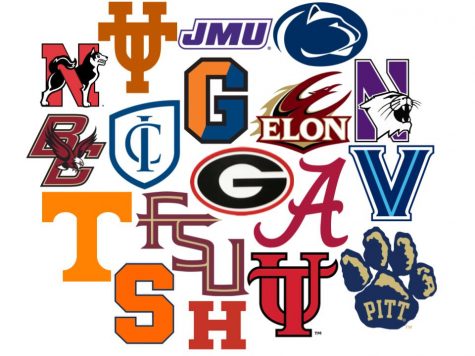The Rise of the Nerds: How it All Went Mainstream
As of recently, the fervor around traditional nerd-culture things has been at its height. Last May, the newest Avengers movie was released and grossed $2 billion worldwide. Companies grapple for marketing schemes and products that target nerd-culture, and in increasing frequency, look to acquire companies that put out virtual reality technology or host gaming streams. In 2013, Yahoo bought the social media site Tumblr for $1.1 billion. In 2014, Facebook bought the company Oculus VR for $2 billion, and the popularity of the company and its headset spiked in 2017, and the company is estimated to sell 1.8 million headsets in 2018 alone. With just looking at the numbers, it’s clearly evident that traditionally nerdy things like virtual reality headsets and a blog dedicated to fictional characters are becoming more popular than in the past.
The numbers continue to speak for how much nerd culture is going “mainstream”, but some argue that the mainstream culture is just joining the fun. In the words of actor Wil Wheaton in an interview with The New York Times, “Becoming mainstream is the wrong word; the mainstream is catching up.” Either way, the group of people enjoying these things and activities is growing in numbers, and quickly. It’s no surprise, considering the level of fun that people have at various events related to nerdy pop culture.
One of those events is NYCC, which is held at the beginning of October in the Jacob Javits Center in New York City. In its 2018 run, the convention was host to a grand total of 555 panels by guest presenters and speakers, as well as 262 opportunities to get an autograph by various actors, artists, and writers. Every single year, NYCC has always had one looming presence: Marvel Studios. The production giant has turned out iconic movies like Iron Man, The Avengers, and most recently, Avengers: Infinity War. Marvel has earned its almost royal place at the convention, and in movie history. Infinity War is now the movie that has grossed $1 billion is the shortest amount of time, and the hype for the next movie only grows.
Marvel has played a large part in bringing nerd culture mainstream. Characters like the Guardians of the Galaxy are well known when they used to be relatively unknown even in comics. Marvel has made nerd culture accessible to all kinds of people with the different stories they tell, and they have made nerd culture both mainstream and open to diverse groups of people. Now, people don’t have to find that hole-in-the-wall comics store to be considered a true fan- they are able to enjoy “nerdy” things much more easily.
The increased awareness around diversity and increased access to ready information has made nerd culture all that more accessible. Instead of having to hold onto shelves of physical copies of comic books, people can access any issue they like online. If someone is wondering about the past of a certain character, they can look up a website page on that particular character. The value and prestige around knowing an oddly-specific and rather unknown fact has lost its meaning, and that has made “nerd culture” more accepting and open to all kinds of people.
Ultimately, it really is the fun of all of these different things that have made this culture mainstream. Where Dungeons and Dragons used to be something that the ultimate geeks and nerds play, the game has opened its appeal to anyone. Besides, “It’s really fun- you get to pretend to be something else, and I like that,” said Caitlin Malmberg, who has played and loved her experiences with the game. While the seriousness around games can persist, such as in the competitions for ESports and various Mass-Multiplayer Online (MMO) games with thousands of dollars on the line, there is an abundance of both online and offline games that are attractive to new players. More than ever, “nerd culture” has become accessible and mainstream.

Elisabeth is the Co-Editor in Chief for The Patriot, and, as a senior, this is her third year with the paper. She enjoys writing about new music, as well...




